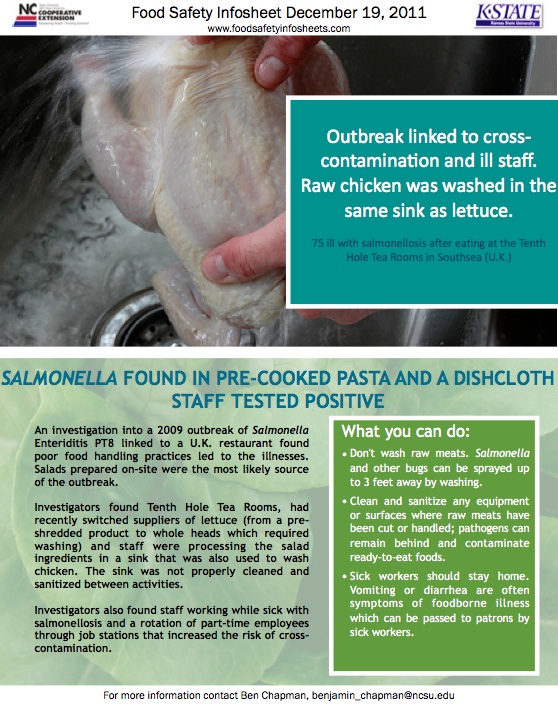Last week’s Consumer Food Safety Education Conference reminded me that even when folks (agencies, organizations, individuals) say that they are sharing evidence-based information with the masses, not everyone agrees on the science, or the message.
There will always be conflict (and that’s okay – harmonized messages look suspicious), what’s more important is that people share how they made their risk-based decisions.
Like why does USDA suggest in their consumer messages that the danger zone for pathogen growth is between 40F and 140F, and FDA’s Model Food Code, which is well referenced says that the parameters are 41F and 135F?
A ABS-CBN News story demonstrates that some folks in the Philippines are looking at different data related to risks.
According to microbiologist Dr. Windell Rivera, raw meat and poultry, the most common ingredients of grilled street food, can easily be contaminated by various bacteria.
According to Rivera, some cases could lead to Hepatitis A, or even kidney failure (the headline of the piece is ‘Cooking on unclean grills can cause Hepatitis-A’ – looking at the evidence in the literature, no it can’t -ben).
Rivera advised thorough washing of poultry and meat products using clean water prior to cooking, as not all bacteria can be killed by heat. Sauces must also be stored properly as they can be contaminated by bacteria if meat with saliva or microorganisms are dipped into them.
Experts added that when cooking and grilling, meat must be thoroughly cooked. Also, as much as possible, chicken must be separated from pork.
Washing meat prior to cooking is a bad idea.


